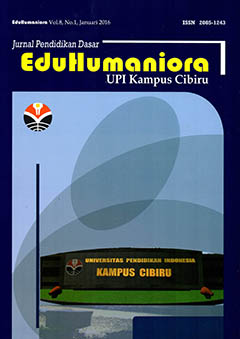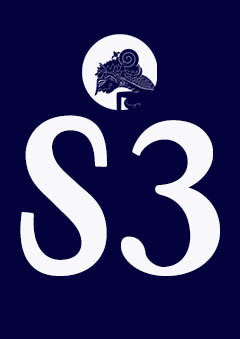The Influence of the Problem-Based Learning Model Assisted with Learning Videos on Learning Motivation, Critical Thinking Ability and Learning Outcomes
Abstract
Parallel with the progress of technology, the discourse on developing learning models has become a focus that attracts the attention of both practitioners and researchers. Explicitly, this requires an adaptive and accelerated attitude from education practitioners. This research aims to test the effect of the Problem-Based Learning model assisted by learning videos on learning motivation, critical thinking skills and student learning outcomes. Statistical accuracy is relied upon to ensure the quality of the results obtained as empirical evidence using a Quasi experimental approach and a non-equivalent control group design. Data was collected through observation, learning outcomes tests and questionnaires, as well as documentation from a total of 56 samples with details of 27 students from the Experiment class and 29 students from the Control class. Descriptive statistical and inferential analysis is used with other sets of analyzes to describe results by considering the ease of reading the research results. The findings ultimately show that there is an influence of the Problem-Based Learning model assisted by learning videos on both learning motivation, critical thinking skills and student learning outcomes with each significance < 0.05.
Keywords
Full Text:
PDFReferences
Ag-Yi, D., & Aidoo, E. N. (2022). A comparison of normality tests towards convoluted probability distributions. Research in Mathematics, 9(1). https://doi.org/10.1080/27684830.2022.2098568
Ali Mansoor, A. A., Mohammed, O. S. M., Ahmed, H. R., Munasser Awadh, A. N., Abdulfatah, H. M., & Sheikh, E. Y. (2023). English language teaching through a short story: A technique for improving students’ vocabulary retrieving. Cogent Education, 10(1). https://doi.org/10.1080/2331186X.2022.2161221
Anatasya, E. (2023). Meta Analisis Pengaruh Model Problem Based Learning terhadap Hasil Belajar Siswa di SD. Journal on Education, 2(1), 114–121. https://doi.org/10.33487/mgr.v2i1.1752
Belland, B. R., Gu, J., Kim, N. J., Jaden Turner, D., & Mark Weiss, D. (2019). Exploring epistemological approaches and beliefs of middle school students in problem-based learning. Journal of Educational Research, 112(6), 643–655. https://doi.org/10.1080/00220671.2019.1650701
Chen, F., Ge, Y., Zhang, S., Xu, W., Yu, J., Zhang, Y., & Xu, X. (2023). Changing Kindergarten Teachers’ Mindsets Toward Children to Overcome Compassion Fatigue. Psychology Research and Behavior Management, 16, 521–533. https://doi.org/10.2147/PRBM.S398622
Connolly, C., Logue, P. A., & Calderon, A. (2022). Teaching about curriculum and assessment through inquiry and problem-based learning methodologies: an initial teacher education cross-institutional study. Irish Educational Studies. https://doi.org/10.1080/03323315.2021.2019083
d’Alessio, M. A. (2018). The Effect of Microteaching on Science Teaching Self-Efficacy Beliefs in Preservice Elementary Teachers. Journal of Science Teacher Education, 29(6), 441–467. https://doi.org/10.1080/1046560X.2018.1456883
Douma, J. C., & Shipley, B. (2023). Testing Model Fit in Path Models with Dependent Errors Given Non-Normality, Non-Linearity and Hierarchical Data. Structural Equation Modeling, 30(2), 222–233. https://doi.org/10.1080/10705511.2022.2112199
Gede Swiyadnya, I. M., Citra Wibawa, I. M., & Agus Sudiandika, I. K. (2021). Efektivitas Model Problem Based Learning Berbantuan LKPD Terhadap Hasil Belajar Muatan Pelajaran IPA. MIMBAR PGSD Undiksha, 9(2), 203. https://doi.org/10.23887/jjpgsd.v9i2.36111
Henschel, S. (2021). Antecedents of science anxiety in elementary school. Journal of Educational Research, 114(3), 263–277. https://doi.org/10.1080/00220671.2021.1922989
Houghton, J. (2023). Learning modules: problem-based learning, blended learning and flipping the classroom. Law Teacher, 57(3), 271–294. https://doi.org/10.1080/03069400.2023.2208017
Inayah, S., Septian, A., & Komala, E. (2021). Efektivitas Model Flipped Classroom Berbasis Problem Based Learning dalam Meningkatkan Kemampuan Berpikir Kritis. Wacana Akademika: Majalah Ilmiah Kependidikan, 5(November), 138–144. https://jurnal.ustjogja.ac.id/index.php/wacanaakademika/article/view/11323
Irmawati, M, Yusuf, I, &, & Widyaningsih, S., W. (2022). Pengaruh Model Pembelajaran Problem Based Learning (PBL) terhadap Minat Belajar Peserta didik pada Pembelajaran Tematik di Sekolah Dasar. Elementary : Jurnal Iilmiah Pendidikan Dasar, 8(2), 110. https://doi.org/10.32332/elementary.v8i2.5201
Kirwelakubun, H. A., Idawati, I., & Nursalam, N. (2023). Pengaruh Model Problem Based Learning Terhadap Motivasi dan Hasil Belajar IPS Pada Siswa Sekolah Dasar di Maluku Tenggara. Wacana Akademika: Majalah Ilmiah Kependidikan, 7(1), 103–114. https://jurnal.ustjogja.ac.id/index.php/wacanaakademika/article/view/14762
Lestari, E., Rahmawatie, D. A., & Wulandari, C. L. (2023). Does Online Interprofessional Case-Based Learning Facilitate Collaborative Knowledge Construction? Journal of Multidisciplinary Healthcare, 16, 85–99. https://doi.org/10.2147/JMDH.S391997
Lockyer, S., & Weaver, S. (2022). On the importance of the dynamics of humour and comedy for constructionism and reflexivity in social science research methodology. International Journal of Social Research Methodology, 25(5), 645–657. https://doi.org/10.1080/13645579.2021.1926050
Malmia, W., et al. (2021). Pengaruh Penguasaan Materi Turunan Terhadap Hasil Belajar Integaral. Uniqbu Journal of Exact Sciences (UJES), 2(April), 6. https://doi.org/https://doi.org/10.47323/ujes.v2i1.108
Masruroh, L., & Arif, S. (2021). Efektivitas Model Problem Based Learning Melalui Pendekatan Science Education for Sustainability dalam Meningkatkan Kemampuan Kolaborasi. Jurnal Tadris IPA Indonesia, 1(2), 179–188. https://doi.org/10.21154/jtii.v1i2.171
Ramadhan, F. A., Muhith, A., Usriyah, L., Islam, U., Kiai, N., Achmad, H., & Jember, S. (2023). Design of Electronic-Based Handout Teaching Materials with Problem-Based Learning Nuances in Learning Mathematics. EDUHUMANIORA: Jurnal Pendidikan Dasar, 15(2), 121–134. https://doi.org/https://doi.org/10.17509/eh.v15i2.56031
Scharp, K. M., & Thomas, L. J. (2019). Disrupting the humanities and social science binary: Framing communication studies as a transformative discipline. Review of Communication, 19(2), 147–163. https://doi.org/10.1080/15358593.2019.1595702
Schwichow, M., Brandenburger, M., Brandenburger, & Wilbers, J. (2022). Analysis of experimental design errors in elementary school: how do students identify, interpret, and justify controlled and confounded experiments? International Journal of Science Education, 44(1), 91–114. https://doi.org/10.1080/09500693.2021.2015544
Setyaningsih, R & Rahman, Z., H. (2022). Pengaruh Model Problem Based Learning. Aksioma: Jurnal Program Studi Pendidikan Matematika, 2(2), 132–145. DOI: https://doi.org/10.24127/ajpm.v11i2.5098
Shin, J., Lee, Y. kyung, Park, S., & Seo, E. (2019). Young individuals’ consideration of goal-self alignment and its relations to goal commitment and social concern: age differences and similarities. Self and Identity, 18(6), 650–667. https://doi.org/10.1080/15298868.2018.1510850
Siregar, N. F. (2022). PENGARUH MODEL PROBLEM BASED LEARNING TERHADAP HIGHER ORDER THINKING SKILLS SISWA SMP Nur Fauziah Siregar. Jurnal Penelitian Dan Pembelajaran MIPA, 7, 14–23. http://dx.doi.org/10.31604/eksakta.v7i1.14-23
Sitompul, N. N. S. (2021). Pengaruh Model Pembelajaran Problem Based Learning terhadap Peningkatan Kemampuan Berpikir Kritis Matematis Siswa SMP Kelas IX. GAUSS: Jurnal Pendidikan Matematika, 4(1), 45–54. https://doi.org/10.30656/gauss.v4i1.3129
Sulastry, T., Rais, N. A., & Herawati, N. (2023). Efektivitas Model Pembelajaran Problem Based Learning pada Materi Asam Basa Untuk Meningkatkan Hasil Belajar Peserta Didik. Jurnal Pendidikan Sains Indonesia, 11(1), 142–151. https://doi.org/10.24815/jpsi.v11i1.28787
Syarifudin, A., Dhewy, R. C., & Agustina, E. N. S. (2021). Pengaruh Model Brain Based Learning Terhadap Hasil Belajar Siswa. JEDMA Jurnal Edukasi Matematika, 1(2), 1–7. https://doi.org/10.51836/jedma.v1i2.155
Trong Nguyen, L., Nguyen, T. H., Ngoc Nguyen, H., Dai Nguyen, L., Thi Thu Nguyen, D., & Duy LE, L. (2023). Determinants of green consumer behavior: A case study from Vietnam. Cogent Business and Management, 10(1). https://doi.org/10.1080/23311975.2023.2197673
Uhm, T., & Yi, S. (2023). A comparison of normality testing methods by empirical power and distribution of P-values. Communications in Statistics: Simulation and Computation, 52(9), 4445–4458. https://doi.org/10.1080/03610918.2021.1963450
Ulya, H., & Rahayu, R. (2021). Mathematical Disposition of Students in Open-Ended Learning Based on Ethnomathematics. Journal of Education Technology, 5(3), 339. https://doi.org/10.23887/jet.v5i3.33535
Webb, M. E., Little, D. R., Cropper, S. J., & Roze, K. (2017). The contributions of convergent thinking, divergent thinking, and schizotypy to solving insight and non-insight problems. Thinking and Reasoning, 23(3), 235–258. https://doi.org/10.1080/13546783.2017.1295105
Widiana, I. W., Triyono, S., Sudirtha, I. G., Adijaya, M. A., & Wulandari, I. G. A. A. M. (2023). Bloom’s revised taxonomy-oriented learning activity to improve reading interest and creative thinking skills. Cogent Education, 10(2). https://doi.org/10.1080/2331186X.2023.2221482
Wu, T. T., & Sung, T. W. (2021). Analysis of the effects of a game-based review system integrated with the hierarchy of learning on learning outcomes in an elementary social science course. Interactive Learning Environments, 0(0), 1–21. https://doi.org/10.1080/10494820.2021.1948870
Xu, X., Schönrock-Adema, J., Jaarsma, A. D. C., Duvivier, R. J., & Bos, N. A. (2022). A conducive learning environment in international higher education: A systematic review of research on students’ perspectives. Educational Research Review, 37(April). https://doi.org/10.1016/j.edurev.2022.100474
Yin, S., Guan, X., Zhang, Y., Li, Y., Jobe, M. C., & Ahmed, M. Z. (2023). The Impact of Chinese Primary School Teachers’ Sense of Work Meaningfulness on Organizational Commitment: A Chain Mediation Model. Psychology Research and Behavior Management, 16, 3477–3488. https://doi.org/10.2147/PRBM.S425043
Zhang, A., Franklin, C., Ji, Q., Chen, Y., Jing, S., & Shen, L. (2018). Evidence-based practice in Chinese social work: overcoming language and developmental barriers. China Journal of Social Work, 11(1), 41–55. https://doi.org/10.1080/17525098.2018.1512621
Zwaal, W. (2019). Assessment for problem-based learning. Research in Hospitality Management, 9(2), 89–97. https://doi.org/https://doi.org/10.1080/22243534.2019.1689696
DOI: https://doi.org/10.17509/eh.v16i2.65043
Refbacks
- There are currently no refbacks.
Copyright (c) 2024 EduHumaniora | Jurnal Pendidikan Dasar Kampus Cibiru
EduHumaniora: Jurnal Pendidikan Dasar
Published in collaboration Program Studi PGSD UPI Kampus Cibiru
and
HDPGSDI
This work is licensed under a Creative Commons Attribution-ShareAlike 4.0 International License.















